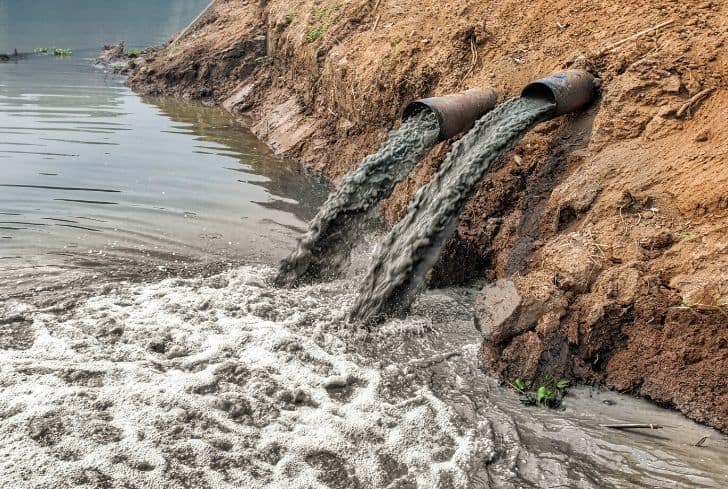Underground water pollution linked to health risks in Rivers State

By Obiabin Onukwugha
Underground water pollution has been linked to health risk in Rivers State, South/South. Rivers State, which derives her name from the many rivers, streams and creeks that surround it, is one of the Niger Delta states where oil exploitative activities have been taking place for over five decades.
It is said that water level in parts of Rivers State and the Niger Delta is said to be so low that it contacts with chemical waste from heavy industrial pollution.
Groundwater is water that exists underground in saturated zones beneath the land surface.
This was revealed by a university lecturer, Prof. Ephraim Ikechukwu, while delivering a Lecture at the Waste Innovation and Pollution Eradication (W.I.P.E) Conference 2024, organised by the Carrington Youth Fellowship Initiative (CYFI), recently.
Iikechukwu, a professor in the department of Environmental Management in the University of Port Harcourt (UNIPORT), warned that even doctors in the city were getting tired of strange cases.
He said there is increasing cases of cancer, respiratory diseases and other ailments in the state. “Doctors are quietly complaining of surge in cancer and respiratory cases in the area. In fact, they are tired. The dumpsites are breeding grounds for diseases. Even what they call company water in Port Harcourt is a danger zone because the boreholes are not treated according to regulation. Multiple interventions are urgently needed,” he said.
Ikechukwu also delved into how improper waste management was contributing to environmental pollution. He regretted that Nigeria has continued to be a dumping ground for e-waste.
The university don further pointed out that industrialisation boosts wastes such as chemical, plastic, and other forms. He said waste redistribution is now a big industry with huge infection potentials.
He gave the major cause for environmental degradation to be landfills, saying, “It is not true that landfills curb waste. It rather contributes to soil and water pollution.”
He said: “Household and industrial wastes have joined hands to pose greater disaster ahead. There is low water depth in the riverine areas of the Niger Delta and Rivers State in particular. The quality of soil has been affected, harvests are poorer, pesticides and other agric chemicals remain in the soil for a very long time.”
The professor of Environmental Management called on the Rivers State government to intervene, especially in providing standard waste sorting centres.
Ikechukwu also posited that waste ends in rivers because government seems to have abandoned the waste management responsibility to amateurs and mercantilist practitioners who he said have no basic understanding of the cycle of waste and dangers of mismanaged waste.
He noted that bio-accumulation in tissues of animals is going on, and that climate change and global warming are high and now cause excessive heat.
“The fish stock in the waters is poisoned and humans end up eating them. Natural balance is destroyed. Animals now eat plastic waste. Cancer is being groomed and spread. The habitat is being destroyed badly. Proper waste disposal is needed, now.
“The Europeans and Americans are now very much aware and are thus more careful about greenhouse effects and emissions.
“But Nigeria is rather a dumping ground for e-waste such as air conditioners, computers, phones, etc. There are regulations and conditions on their use and longevity in most advanced countries where they return them to the factories after a year or two. Africa especially Nigeria rather welcomes them as fairly used.
“There is no recommendation on how to dispose of these old computers which we find at refuse dumps,” he said.
Ikechukwu insisted that the war against waste has gone beyond the 3Rs, to 5Rs, and now to 7Rs, which is rethink, refuse, reduce, reuse, repair, regift and recycle.
“Re-Use: It is advised that people use most of the packaging from one item for use next time and reduce procurement of the next cycle of packaging. Recycle: This is an important practice to reduce waste by recycling the waste for another life. Recover: This is where extraction plays a role by extracting what is good to produce it again.”
He went on to talk about ‘Rethink’ which he said was about creating a fundamental shift in how people viewed waste, while ‘Repropose looks at the idea of transforming objects into new forms. In ‘Refuse’, he talked about the concept of rejecting bad practices that cause waste.
